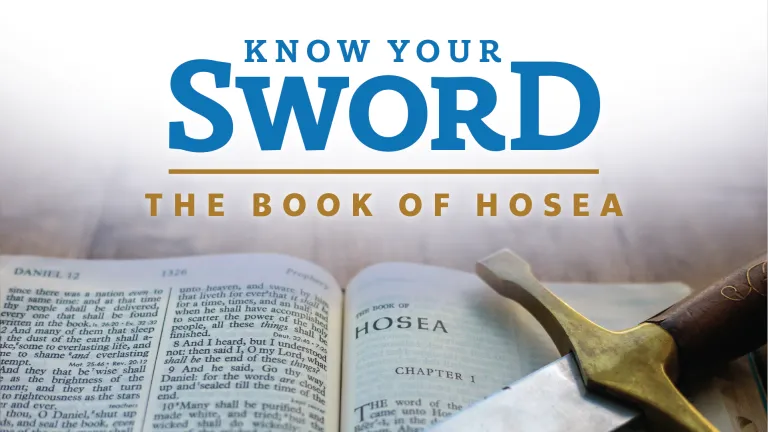Hosea Part 10

To understand and appreciate the messages from the Bible and the prophets today, it is necessary to have some sense of the historical and cultural context into which the words were written. To neglect the context is to risk misunderstanding the message God wants us to receive.
As we explore the words of Hosea, Joel and Amos we read of specific people and places. These people and places become a ‘type’ of, or analogous of people and places at other times, and in our time. As we read of human thought and behavior patterns, we learn to recognize similarities in other biblical narratives and in the headlines of today.
Paul informed Corinth that the stories of Israel as they left Egypt and their adventures in the desert were all written for our examples, so that we would not follow the same patterns of behavior and experience the same punishments and judgments that they did. In the first verses of 1 Corinthians 10, Paul reminds readers of the bad behavior of the Israelites in the desert, and he warns them that they (and we) are all capable of the same sins.
“Now all these things happened to them as examples, and they were written for our admonition, upon whom the ends of the ages have come. Therefore let him who thinks he stands take heed lest he fall. No temptation has overtaken you except such as is common to man; but God is faithful, who will not allow you to be tempted beyond what you are able, but with the temptation will also make the way of escape, that you may be able to bear it.” (1 Corinthians 10:11-13).
We see that reading the history of those who came before us is beneficial and the records of the story are intentional and educational. We see that patterns of thought and behavior are consistent with nations, kings, judges, people and the adversary Satan and his evil influencers. As we read these expository messages, intended to help us understand the times in which the words were written, we can learn how the cultural, religious, political and geographical backgrounds influenced thought and behaviors. We can learn to see how contemporary culture influences thought and behavior now, and understand how God sees this behavior, and what His response will be.
It has been estimated that up to one-third of the Bible is prophetic and only one-third of that has been fulfilled. This helps us understand that much of the words of the Bible apply to the future! This is not just a history book, it tells us what is going to happen. It teaches us how to think and behave and what the end will be for obedience and disobedience. It tells us how God is going to bring righteous judgment to people after a time of patience. The Bible reveals to us what will happen through the prophets. Jesus Christ reveals to us in Revelation 1:3,
“Blessed is he who reads and those who hear the words of this prophecy, and keep those things which are written in it; for the time is near.”
As we wonder how the events we read about in the prophets or in Revelation that we know have a future fulfillment will play out, we can know that God is the orchestrator of all of the events, they will happen, and that He has told us what will happen. He has told us figuratively in some cases, so that it can be hard to understand, yet God inspired Amos to write,
“Surely the Lord God does nothing, unless He reveals His secret to His servants the prophets” (Amos 3:7).
Nothing will happen that hasn’t been revealed. We may not understand what is happening at the time, yet we will understand when all is ultimately explained. We can learn to discern the times, and follow James’ admonition,
“If any of you lacks wisdom, let him ask of God, who gives to all liberally and without reproach, and it will be given to him” (James 1:5).
What a blessing it is to have access to God’s words, and to prepare our hearts and minds to receive them.
“Blessed is he who reads and those who hear the words of this prophecy, and keep those things which are written in it; for the time is near” (Revelation 1:3).
UYA Team | uya@ucg.org
United Young Adults (UYA) primarily serves the 18–32-year age group for the United Church of God. There are three main areas of contribution to the lives of the young adults: Promoting Spiritual Growth, Developing Meaningful Relationships and Making the Most of Your Talents. The Know Your Sword series is a daily expository message introducing God’s Word from a trusted perspective.


